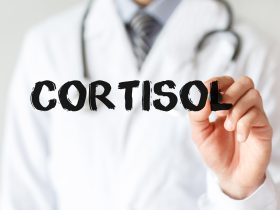Anemia is a condition characterized by a lower-than-normal count, size, or function of red blood cells (RBCs). It’s a fairly common issue that is usually treatable.
Your red blood cells contain hemoglobin, an iron-containing protein responsible for transporting oxygen throughout your body. When their number is low or when they don’t perform adequately, you might experience low energy levels. Additionally, other symptoms such as persistent cold sensations, headaches, and dizziness may manifest.
Anemia typically develops gradually, and individuals may acclimate to its effects over time until the symptoms suddenly get worse.
This article aims to delineate the causes, symptoms, and strategies for managing anemia.
Common Causes of Anemia
Anemia can stem from various factors, primarily arising due to a deficiency in red blood cell (RBC) production or excessive loss of RBCs.
Nutritional deficiencies, often involving inadequate levels of vitamin B12, iron, or insufficient protein intake are among the most prevalent causes of Anemia, but they can also include:
- Malnutrition: Resulting from a diet lacking in vital nutrients like vitamin B12, iron, or protein.
- Lead Exposure: Contact with lead through sources like lead paint or contaminated water.
- Congenital RBC Disorders: Such as sickle cell disease, present since birth.
- Sudden Blood Loss: Such as after an injury or due to surgical procedures.
- Chronic Blood Loss: Ongoing and slow blood loss caused by conditions like gastrointestinal bleeding, bladder disease, or heavy menstrual bleeding.
- Gastrointestinal (GI) Conditions: Disorders affecting nutrient absorption in the digestive tract.
- Cancer or Chemotherapy: Some types of cancer or cancer treatment can contribute to anemia.
- Chronic Liver or Kidney Disease: Conditions affecting organ function.
- Infections: Certain infections, such as malaria, prevalent in specific tropical regions.
These causes can result in different patterns of anemia. For instance, traumatic blood loss can lead to sudden and severe anemia, while conditions like some cancers may rapidly worsen, causing a sudden onset of anemia.
Conversely, lead exposure or liver disease can lead to a gradual progression of anemia over time.
A great way to prevent the development of Anemia is sticking to a healthy diet. If you have trouble finding the right diet, try our step-by-step guide to the Mediterranean diet.
Recognizing Anemia Symptoms
Anemia typically presents with consistent symptoms irrespective of its underlying origin.
Common symptoms of anemia often include:
- Lower energy levels
- Headaches
- Increased sensation of cold
- Dizziness
- Unusual or heightened irritability
- Notably paler skin, especially evident in areas like the lips, fingers, and toes.
Moreover, here are some symptoms that are not necessarily caused by anemia but can appear along with it:
- Pica: a condition where individuals consume non-food items, often linked with iron deficiency anemia.
- Diarrhea: occurring due to gastrointestinal malabsorption issues, complicating nutrient absorption.
- Jaundice: manifesting as yellowing of the skin and eyes, associated with liver disease.
- Weight loss: if tied to cancer or underlying causes of malnutrition.
- Abdominal distention: a swelling or bloating of the abdomen, observed in various cancers affecting the bladder, liver, kidney, or stomach.
If you have an existing medical condition, your healthcare provider might advise you to watch out for these signs. They could indicate a worsening of the underlying disease and you should keep your physician up to date with any changes you see or feel.
Signs of Severe Anemia
Anemia can vary in severity, with even mild cases requiring treatment. However, severe anemia can pose a critical medical emergency.
The effects of severe anemia can include:
- Extreme dizziness or loss of consciousness
- Heart failure
- Insufficient oxygen supply to the brain or other vital organs
The following symptoms indicate the need for immediate emergency medical attention:
- Impending fainting sensation
- Heart palpitations
- Breathing difficulties
- Loss of consciousness
- Low blood pressure
- Elevated heart rate
- Low blood oxygen saturation
If you experience any of these signs or symptoms, seeking immediate emergency medical attention is crucial.
Anemia Management
For individuals diagnosed with chronic anemia, having an action plan is essential in case of symptom exacerbation. This plan may involve contacting your healthcare provider or seeking urgent or emergency care if experiencing dizziness or low blood pressure.
Treating anemia involves addressing the root cause to enhance the red blood cell count or function. Supplements like iron or vitamin B12 might be advised if a deficiency is identified.
However, it’s crucial to diagnose the underlying cause before self-administering supplements, as they may not be suitable for all forms of anemia.
Preventing anemia primarily revolves around maintaining a healthy and well-balanced diet, ensuring proper intake of various vitamins and minerals, particularly, folic acid, iron, and vitamin B12. You can find the right one for you by checking out the top 9 healthy diets and trying the one that seems suitable for your needs.
Treatment for anemia is typically effective. Depending on the specific cause, treatment may involve a one-time intervention or require ongoing management for the long term.
Consulting a healthcare professional is essential for proper evaluation and management if you suspect or experience symptoms of anemia.















Find Us on Socials